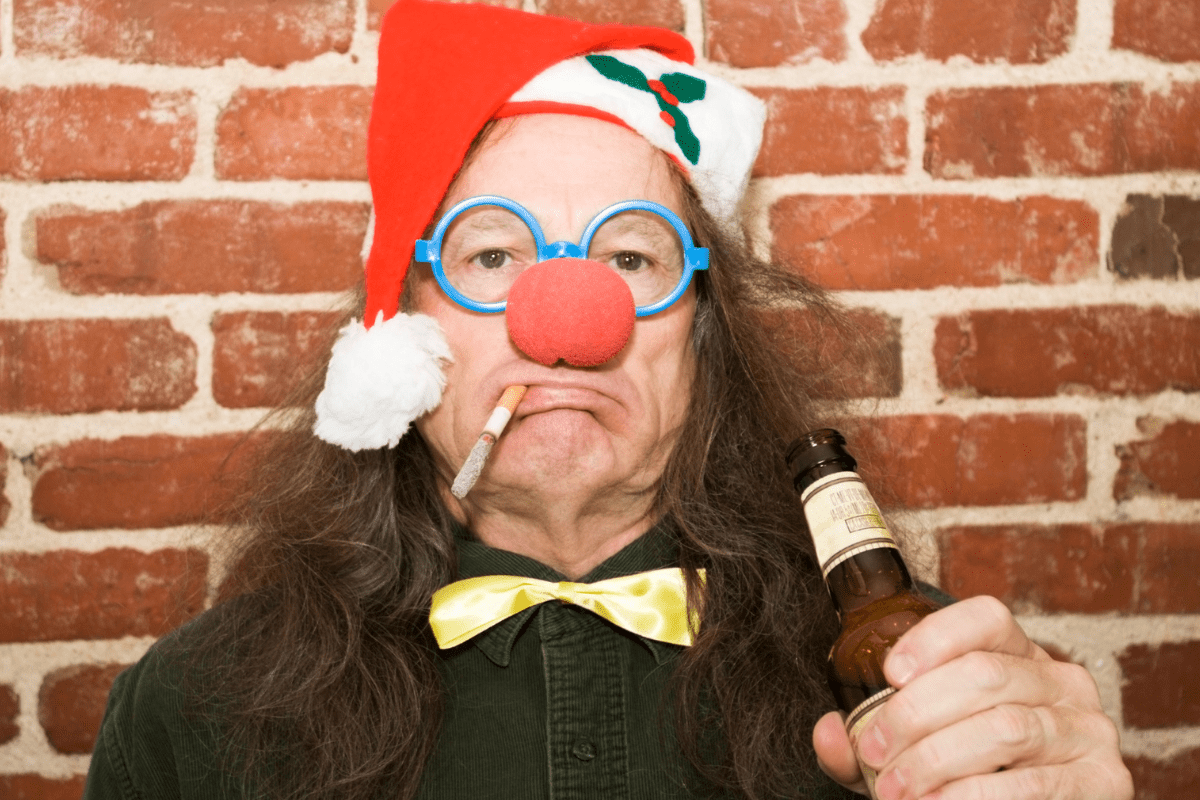By: Design for Change Recovery
Categories:
How to Deal With the “Holiday Blues” Without Relapsing
You are here:People who are in addiction recovery find it challenging to stay on track during the holiday season. Many of the festivities involve alcohol or recreational drug use, making the risk of holiday relapse more likely.

As a result of the holiday blues, a person is likely to reach for a source of solace such as alcohol, marijuana, or other mood-altering substances. Someone in recovery from drug or alcohol misuse or inappropriate use is vulnerable to the holiday blues for many reasons, putting them at an increased risk for relapse.
How Can You Tell If You Are at Risk of Holiday Relapse?
The relationship between the holiday blues and relapse is often overlooked. In fact, during the holidays, a person in recovery may not realize how close they are to relapse until it happens. Studies show that relapse is a gradual process that begins before the person actually takes that first drink.
Knowing the signs of the holiday blues is the first step in avoiding holiday relapse. It’s important to recognize the difference between the holiday blues and other seasonal issues such as fatigue or stress.
The most common signs that indicate you have the holiday blues include:
- Changes in sleep patterns
- Loss of appetite and weight loss
- Tiredness, irritability
- Trouble concentrating
- Feeling overly worried, tense, or anxious
- A sense of worthlessness or guilt
- Lack of interest in activities that were once enjoyable
- Persistent or recurrent feelings of sadness or depression
The holiday blues differ from seasonal anxiety disorder (SAD). Seasonal depression or the holiday blues typically starts in November or December and usually lifts shortly after. In contrast, SAD lasts about 40% of the year with more severe symptoms.
Coping With the Holiday Blues Without Relapsing
As soon as Christmas is over, some folks are getting ready for New Year’s Eve celebrations. But, for some individuals, this is a time of reflection. Looking back at the past year can bring on feelings of regret or failure. Thinking about the goals they failed to accomplish can leave them feeling sad or depressed. As long as these feelings are present, the risk of holiday relapse increases dramatically.
Maintaining sobriety during the holidays can be easier with these suggestions:
- Don’t drink if you’re feeling down. Drinking alcohol only increases your feelings of sadness or depression. Even one drink can be the trigger that leads to a difficult relapse situation.
- Avoid isolating yourself. If you’re alone during the holidays, find ways to enjoy social interactions with other sober people. Volunteer at a community event or attend extra support group meetings.
- Get regular exercise. Research shows that physical activity plays a significant role in preventing or reducing depression symptoms. Even casual activities such as walking or riding a bike can keep the holiday blues at bay.
- Schedule “me” time. Even 15 or 20 minutes of relaxation can do wonders for relieving stress. Take time to read, enjoy music, do yoga, take a swim, or do any other activity that relaxes you.
- Set realistic expectations. Holidays don’t have to be picture-perfect to be enjoyable and special. Focus on the time you spend with loved ones now while also remembering past holidays with fondness rather than sadness.
- Don’t be afraid to say no. You know your limits, so don’t agree to attend festivities that could be a trigger for relapse. It is up to you to protect your sobriety, so don’t put yourself in any situation that can jeopardize your recovery goals. It’s okay to say no.
The risk of holiday relapse is something you need not face with dread and despair. Pay attention to the things that contribute to your anxiety and stress. By understanding the things that cause the holiday blues, you can take steps to avoid them or manage them before they disrupt your Christmas season.
Reach Out to Design for Change Recovery After Holiday Relapse
At Design for Change Recovery, we understand the connection between the holiday blues and relapse. Our treatment program is designed to help clients learn how to cope with the stress, depression, or anxiety that causes rebound behavior.
If you suffer a relapse during the holidays, don’t feel that you have failed. How you handle the situation from here forward is what counts.
If relapse occurs you want to address it right away. Don’t hesitate to contact us at our Lancaster, CA facility. One of our representatives will recommend a customized treatment plan to help you get back on the path to recovery.
Sources:
- verywellmind.com/ – What Are the Holiday Blues?
- ncbi.nlm.nih.gov/ – Relapse Prevention and the Five Rules of Recovery


